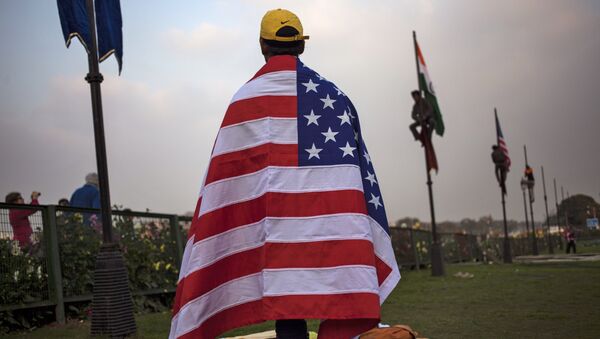The US government's order allowing applicants for H-1B visas to continue ongoing employment in the United States in the same position with the same employers has come as a breather for the Indian community, which is one of the highest-earning in the US.
Talking about the reason for such a relaxation in norms, Pavan Duggal, an IT industry expert, tells Sputnik that it is a pragmatic realisation by the US that these foreign workers are effectively helping to pull the American economy out of the current economic recession.
"It's a declaration of the fact that the American economy is strengthened by people from other countries. Given the changed reality due to COVID-19, any country would require any support for beefing up its economy. It is a right step in the right direction", Duggal said.
According to United States Citizenship and Immigration Services (USCIS) data, the country issues 85,000 H1-B visas annually, out of which Indians reportedly secure about 60,000.
Thousands of employees from India and China are hired by American companies with the help of the H-1B visa - a non-immigrant visa for specialty occupations that require technical expertise.
Arguing that these American jobs are being taken over by people from other countries during critical times like the pandemic, US President Donald Trump signed a presidential proclamation banning the H-1B, L-1 and J-1 visas until the end of 2020.
Several US tech firms, including Microsoft, filed a lawsuit against Trump's visa ban order, claiming that it would hurt American jobs
Recession Fears
Another factor compelling the United States to review its visa ban includes the abysmal state of the global economy. With the recession knocking on the doors of the United Kingdom - the country's GDP tumbled 20.4% in the April-June quarter - uncertainty looms large over other countries that continue to grapple with the pandemic.
"The US has quickly realised that with COVID-19, economic recession has already arrived. So once the recession happens, a sovereign government does everything in its power to revive the economic activity. Initially, the ban policy was locking the door to an abundant stream of fresh talent from outside. Now, (with the relaxations) this talent will help in rejuvenating the (US) economy", Duggal explained.
The H1-B visa holders' total income tax contribution in the US is $85 billion per year, including those currently working in the United States. Not only do H-1B visa holders contribute to the economy, but they also contribute hundreds of billions to US government welfare programmes, such as social security and Medicare.
Studies have pointed out that workers who received H-1B visas from 2010-2013 would create more than 700,000 jobs for US-born workers by 2020.
Meanwhile, NASSCOM, a trade association body for Indian information technology, welcomed the step, but maintained that it is "cautiously optimistic" about the changes in norms.
"The impact can only be gauged in the course of time....as caveats in the DoS guidance about seniority, unique and significant contributions and/or other factors that go along with the exceptions still allow a lot of leeway in interpretation of the new guidance", the statement said.



